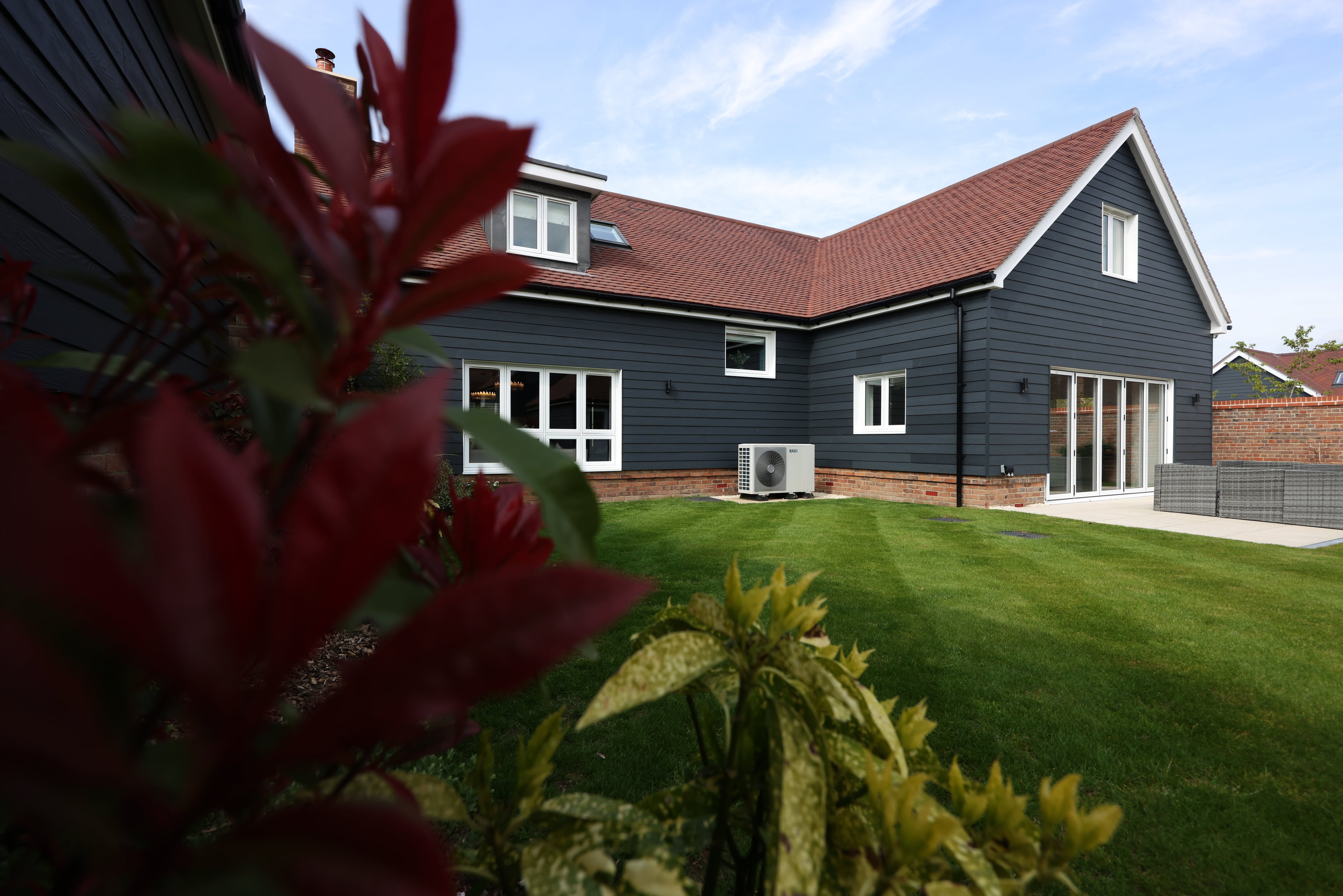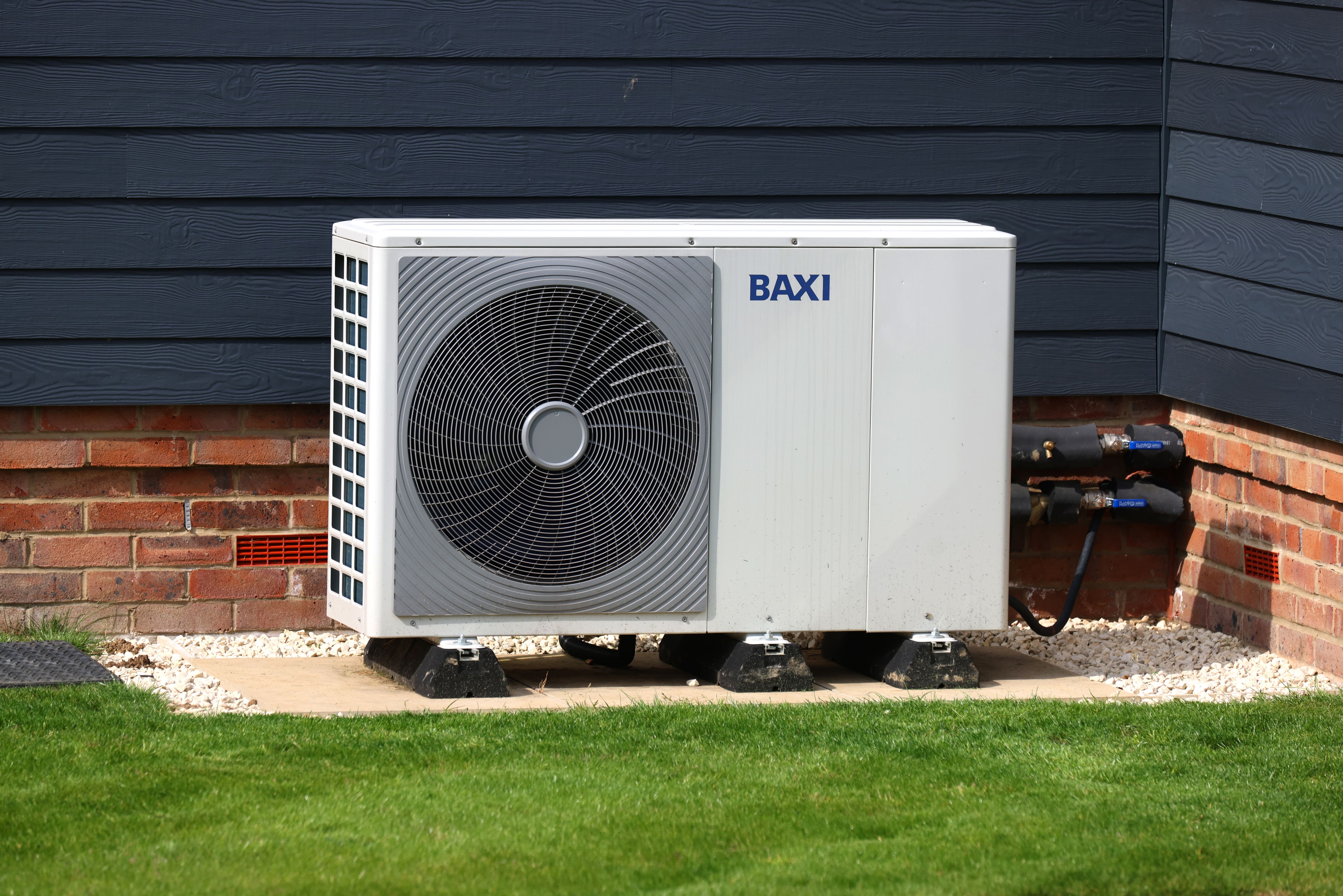Are air source heat pumps safe?

Air source heat pumps do not burn fossil fuels in order to operate and it is becoming increasingly likely that renewable sources like solar or wind will be providing a significant portion of that electricity to your home, depending on your energy provider. However, they do require proper maintenance and clearances to ensure safe and reliable operation.
In this guide, we’ll explore these aspects, addressing common safety concerns and showcasing Baxi’s dedication to safe and efficient heat pump systems.
Safety features of air source heat pumps
Are air source heat pumps safe? Yes.
They come equipped with all the necessary safety features like pressure relief valves and temperature sensors, ensuring protection against overheating and excessive pressure. Compliance with UK safety standards guarantees homeowners can rely on their heat pumps and other, wider elements of their heating system, for safe and secure operation.
Installation considerations for safety
The use of a competent installer is vital to ensure safety. They will ensure that the heat pump meets all regulatory standards, reducing risks associated with improper installation. Electrical connections, adequately sized circuit breakers, suitable clearances for the unit are just some examples of important installation considerations from a safety point of view. Siting of the unit will also have an effect on the performance and efficiency of the ASHP.
Please note that HP60 uses a refrigerant called R290 which is an A3 classified gas: this means low toxicity, but high flammability. However, the refrigerant is self-contained and should not leak. There are certain safety considerations that will be discussed by your installer. Please get in touch with Baxi if you have any queries.
Common safety concerns addressed
Concerns around electrical safety and refrigerant leaks are mitigated through professional installation and regular maintenance. Baxi's commitment to safety involves adhering to strict standards, encouraging regular checks to identify any issues early, and offering our expertise and knowledge sharing with all our customers.
Maintenance for safe operation
Routine maintenance is vital for keeping your air source heat pump safe and operational. As a minimum, an annual service should be arranged using a competent person. This is not only important from a safety point of view, but also a requirement for warranty.
Typical tasks carried out are:
- Clean filters
- Check outdoor pipework and insulation
- Visual inspection - check evaporator is clear from build-up of debris, leaves etc.
- Check refrigerant circuit for signs of leaks
- Check condenser
- Inspect/clean covers, fan blades, etc.
- Check glycol concentrate levels (if applicable)
- Check the system is operating as it should
- Check all electrical connections
Check system controls and parameters
Between annual servicing, be attentive to unusual noises or efficiency drops, as these may signal the need for professional attention. Promptly addressing issues like water leaks or increased energy bills ensures your system remains safe and efficient.
Baxi’s commitment to safe heat pumps
Are air source heat pumps safe when you choose Baxi? Absolutely. We ensure our products comply with all UK safety regulations, supporting this with clear documentation for installation, maintenance and handover. Our dedicated aftersales team of call centre staff, as well as a nationwide coverage of heat pump engineers, ensures you can confidently enjoy a reliable, energy-efficient heating system.

Find an Installer
Simply enter your postcode and find a local, trained, Gas Safe registered (where applicable) engineer to give you a no-obligation quote on a new boiler, cylinder or air source heat pump installation.




